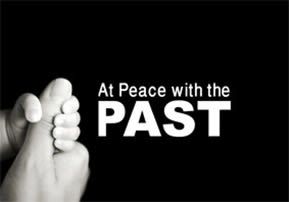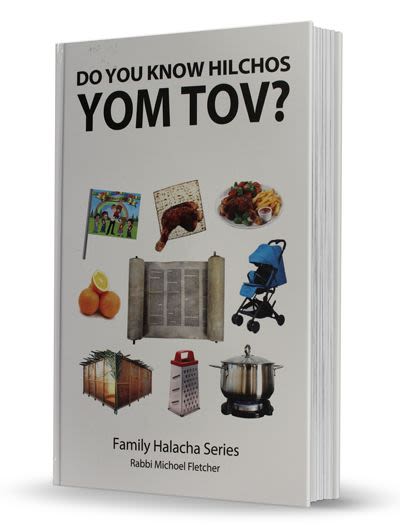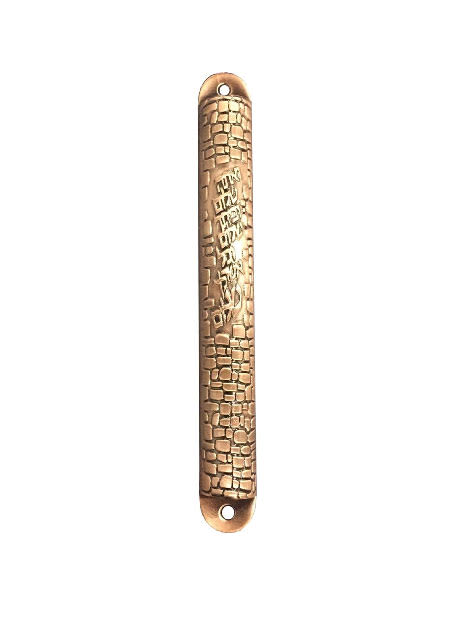I was talking about parenting with my friend Kyle. We were discussing what we want our kids to be when they grow up, what professions would make us proud, not so proud, is making a bunch of money important- that kind of thing. He said, “I just want my kids to make enough money to pay for the therapy to undo all of the damage I’ve done to them. That’s all I need.” Of course he was being funny and serious all at once. Even if we try incredibly hard and care from the tips of our toes to the top of our head, we will screw up our children on some level. Maybe they will forgive us. Can you imagine, God forbid, if they didn’t?
Hopefully becoming parents ourselves helps us to look at our own parents and feel some compassion, to forgive them for their mistakes. There are many forces in this world that don’t want us to forgive our parents. It seems like everyone and their uncle spends a significant amount of their adulthood working through all of the issues they were given by their parents. And until we have worked through the issues, the rule seems to be we can not forgive. There are so many imperfect parents out there it’s a wonder families can sit at a table together once a year. Actually, I know many who can’t. You probably do too. And all of these damaged people are terrific material for talk shows, memoirs- which are all the rage- and the dreary tear-jerker Hollywood will crank out based on them. When we are constantly bombarded by these tales it is sometimes hard for us to move beyond the hurt and the mistakes our parents made to forgiveness, to shalom. In spite of the fact that Hashem, our Father, is constantly forgiving us, we mortals so often want to put the screws to our parents and really make them pay.
One of the highlights of my month is a book club meeting I attend. When I picked up The Glass Castle by Jeanette Walls, a journalist for MSNBC, for our September meeting, I was bracing myself for yet another bleak expression of childhood angst. This book had been firmly lodged on the New York Times non-fiction best seller list and judging from the back cover it was going to be full of tales of drunken and lunatic parents doing bad things while their frightened children looked on, counting the days until their freedom. Instead, I’m delighted to share I was moved to tears for another reason. Jeanette Walls, despite an upbringing that seems at times too bad to be true, loves and forgives her parents to a degree that moved me on a spiritual level. This book goes beyond emotions and ego and shows by profound example what God-like forgiveness is about. I’m not attempting a book review here. I’ll just flat out tell you to read it. She writes like Dickens, but it’s true, and unlike Dickens she has a superb editor. What I really want to express are some thoughts about gratitude and forgiveness that Jeanette Walls inspired.
A Torah concept that Rabbi Lazer Brody opened my eyes to is the notion that when one is trapped in negative emotions, whatever they may be, one is cut off from Hashem and is in essence blind. Your eyes work, but they see everything though a filter that obscures the light and the detail, allowing you to only see the negative that affirms your pain. This becomes a cycle that, God forbid, can suck you in like a whirlpool. The Evil Inclination wants us to wallow in the pain and grope around in the darkness in perpetuity. When we are lost in that darkness, we can’t accomplish much of anything, let alone live by God’s laws and do our job here on earth. The right filter to see through, as Rabbi Brody told me several times, is the filter of emuna. It takes you out of the darkness, lets you understand that everything happened for the best, and therefore enables you to be at peace with the past and with parents.
The darkness of Jeanette Walls’ childhood anecdotes made me cringe and the crimes committed by her parents seem unforgivable. The litany of dangers her wacky, downright neglectful parents exposed their children to are mind boggling. For example, would you let your three-year-old boil water and make her own lunches on the stove? Of course not. Because you have a brain in your head you would never do a thing like expose your small infant to flames and a cauldron of boiling water. The Walls parents thought this was a grand idea in the name of teaching their kids independence. And of course, Jeanette set herself on fire and ended up hospitalized with severe and life threatening burns. Prior to dragging their daughter out through an emergency exit to avoid paying their bill, Mrs. Walls found the energy to lecture the nurses about feeding Jeanette chewing gum while convalescing. The woman had her priorities. And this is a relatively minor example from Jeanette’s childhood.
Other basic parental duties seemed foreign to Mr. and Mrs. Walls, like for example providing clean water and food on a regular basis. I know that there are unfortunate souls who due to circumstances beyond their control can not provide such necessities for myriad reasons. That doesn’t apply here. Both the Walls parents were physically capable of work, lived in the midst of various job opportunities- some with solid pay and benefits- and deliberately refused them, allowing the children to starve and eat from trash cans and drink from puddles on a regular basis. Even when the parents had money, they often chose to not purchase food for the kids. The number one priority for dad was booze. Then if money was left over mom bought art supplies of all things, to capture the beauty around her, apparently blind to her starving kids. They weren’t painted I guess.
There are 288 pages full of such tales. Yet the tone of the memoir is never self-pitying. Lest you think such parents incapable of inspiring love in their children- and they are clearly way on the undeserving end of the spectrum by any normal standards- the book is a love story for her parents in many ways. In the midst of the totally narcissistic and confounding child-rearing decisions the Walls managed to inspire deep and real love and concern from their daughter. Jeanette in particular managed to take every empty glass from her childhood, scrutinize it for one speck of water vapor and declare it half full. She took her mother’s ability to see beauty worth painting in a rat infested hovel and examined her own parents’ actions with the same generosity. And Jeanette is a highly intelligent and gifted, successful, professional woman. She’s not crazy. Ms. Walls is capable of seeing the good points in her life, in her parents, with a sobriety and generosity that took my breath away. It occurred to me at the end of the memoir that this is what Hashem must do with each and every one of us. And that made me cry really hard.
As I read I kept looking at the picture of Ms. Walls on the back cover. I had to reassure myself that she was alive and intact, that she had really survived. I know that’s stupid because it’s a recently authored memoir of a famous person on TV. Clearly she lived. I had to keep looking at her to see that she was human, and real. Because the optimism, the generosity of spirit in this woman is unreal. Through sheer force of will she refused to become enveloped by darkness. In an interview with Ms. Walls she’s asked about forgiveness. Her response was that forgiveness implies that something bad happened to her. She explains that she made a choice to see her life differently, to focus on the beauty, on what her mother and father did right. And to be grateful for it. Besides, she explains, what’s there to be unhappy about when you can walk through a grocery store and buy pretty much anything you want? Imagine what the world would be like if we refused to become blind to such bounty. And we remembered that our Father in Heaven picks through the worst kind of mess and manages to see a bounty within us.












Tell us what you think!
Thank you for your comment!
It will be published after approval by the Editor.